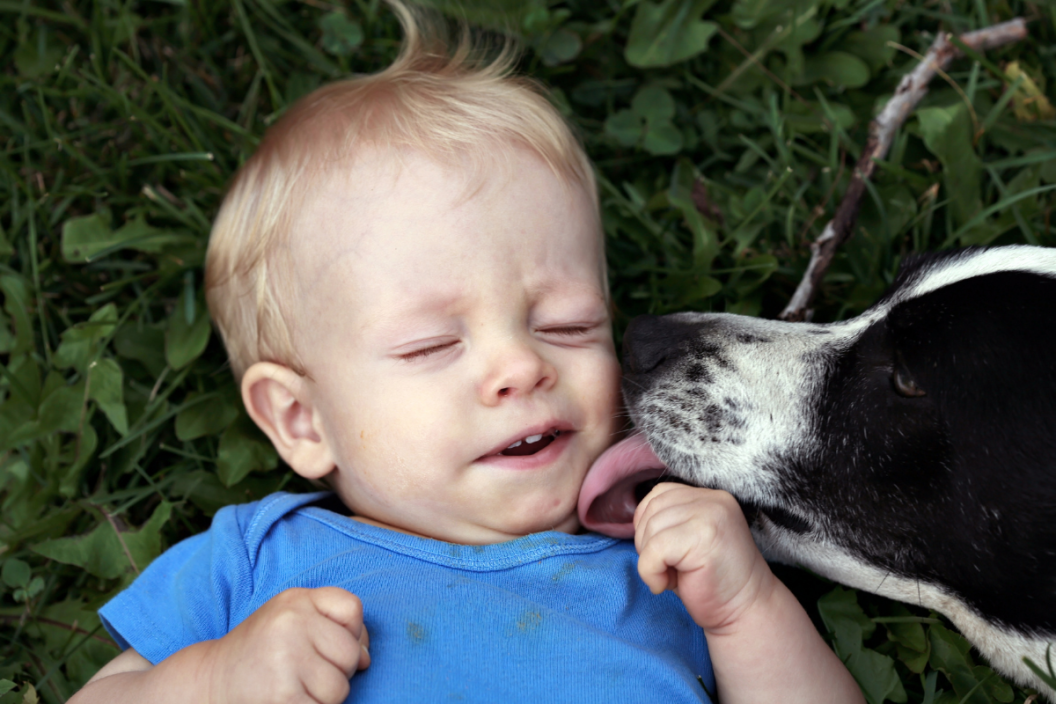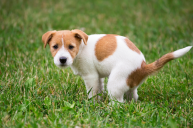Kissing your pets seems like the best way to express your affection for your favorite four-legged friend, but is it healthy?
Cat and dog owners love to shower their pets with affection. Snuggles, hugs, treats, and kisses are frequently bestowed upon these furry friends. But is kissing pets unhealthy?
Pet owners may wonder just where their pup's mouth has been and if it okay to be near their own. I've seen some of the things my dog does with her mouth, and I'm not so sure I want my dog's mouth too close to mine. But is it okay to give your pooch or kitty a smooch or two every now and then?
Do Cat And Dog Kisses Carry Diseases?
Let's face it: your dog licks just about everything in sight, and if your cat goes outdoors, they may have some questionable eating habits. So what exactly does cat and dog saliva retain? There are many old wives tales about how a dog's mouth is the cleanest place you will find, or if a dog licks your wound, you will heal faster.
However, it turns out that kissing your pets may be incredibly unhealthy. There are many Zoonotic diseases, diseases that animals can give to people, that Fido and Felix can transfer over to you. According to Doral Vet Care, there is plenty of bacteria floating around in your pet's mouth.
Types of Bacteria Living in Your Dog's Mouth
Did you know: Dog excrement can carry harmful bacteria that can contaminate water. Just remember to pick up after your pet and keep our oceans clean. #4Ocean #PetFriendly
?@RozzBurrows pic.twitter.com/1wxujwDzM2
— 4ocean (@4ocean) May 11, 2018
Out of the numerous bacteria hanging out in your pup's mouth are some pretty nasty ones that come to the forefront.
1. Pasteurella
This bacteria can be found in the mouth of your dog and your cat. It can lead to health risks such as skin infections, lymph node infections, and more.
2. Bartonella henselae
The Bartonella bacteria is responsible for the scary and difficult-to-diagnose skin and lymph node infection, cat scratch fever. Health care providers tend to be stumped by this one, as the symptoms can mimic lymphatic cancer.
3. Salmonella
It seems like you can get Salmonella from just about anywhere. The CDC has a warning about this bacteria almost every week, but it can cause mild to severe intestinal issues.
4. E. coli
E. coli bacteria is known best for plaguing romaine lettuce, triggering a recall every couple of months. The bacteria live in many different places, but most commonly comes from feces transmission - If your dog licks their butt, and then your face, they can transfer some of their poop onto you.
5. Clostridia
Clostridia are anaerobic bacteria that live in pets, decaying plants, and soil. Contact with this bacteria will cause intestinal distress in humans.
6. Campylobacter
The campylobacter bacteria lives in your pup's intestinal tract and can surface in their mouths, causing severe intestinal distress for you.
Pups also can give parasites to their owners. Pests like hookworm, ringworm, giardia, and roundworms can easily be transferred from your dog to you via sweet puppy kisses, with some fairly detrimental effects. These parasites can cause major intestinal distress, skin disorders, brain problems, and even blindness.
Cats can also transfer Toxoplasmosis to humans, which can be transmitted through kitty litter, which is why pregnant women are not supposed to handle kitty litter changes since they are at a higher risk of contracting the disease. Cat's also carry gum disease bacteria in their mouths, plus whatever diseases they prey may have had. While it may be sweet, kissing pets can be unhealthy.
Preventing Disease Transmission
In for annual cleaning & no disease. Prevention is key to healthy pet mouths! #vetdentistry http://t.co/9vnR5hJZmI pic.twitter.com/0F7f0xNryf
— Dr. Tony Woodward (@MTpetdentist) August 8, 2014
RELATED: Deadly Dog-to-Human Parasite Lands In North America
Healthy people are just as susceptible to these diseases as those with weak immune systems. However, if you have a weaker immune system due to chronic illness, AIDS, chemotherapy, or you are a pregnant woman, these infectious diseases will hit you harder. In some cases, an infection can lead to hospitalization.
To prevent infection clean open wounds if they are exposed to a dog or cat's saliva and practice proper handwashing techniques.
Keep your pup's kisses away from your mucous membranes, a.k.a. your mouth and nose, in order to stay healthy as diseases are more easily transmitted through these areas of the body. This is especially important for children, seniors, and those with compromised immune systems that can not fight off diseases as easily.
Make sure your pets are receiving regular veterinary care to help stave off any bacterial infections. Your pet may also need regular deworming if they tend to eat a lot of vermin. You may also want to reign in the amount of hunting your dog or cat does in order to prevent infections altogether.
If kissing pets is unhealthy, how do you show them affections? According to Vet West, give your pet a kiss on the tops of their heads. Your pet will still know that you love them and the risk of disease transmission goes way down.
Do you let your pet give you kisses? Tell us over on our Wide Open Pets Facebook page.
READ MORE: Tick or Skin Tag? How to Know What's On Your Dog




